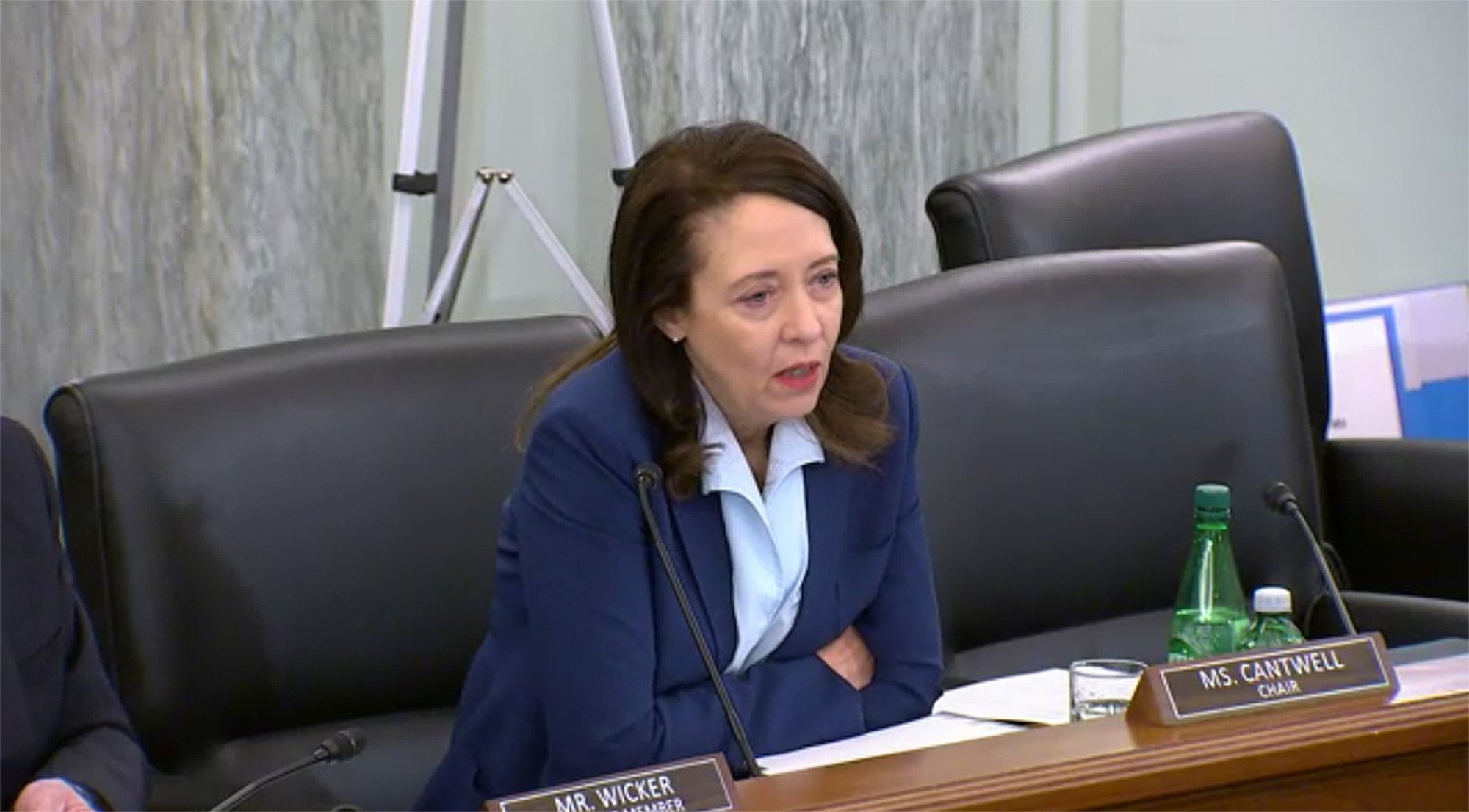
Intel’s apology for call to boycott Xinjiang criticised in US Senate hearing
- CEO challenged after backtracking on request that partners not use workers or products from Chinese region where Uygurs were allegedly subject to forced labour
- Comments made during hearing about legislation aimed at boosting US’ tech competitiveness, including in semiconductor manufacturing
Intel Corp came under fire during a Senate hearing from one of Congress’ most vocal China critics on Wednesday over an apology that the company issued after its response to alleged forced labour in the country.
Both versions – which must be combined into one before Congress can send it to President Joe Biden for his signature – would earmark US$52 billion to support US semiconductor manufacturing and include other measures intended to counter Beijing’s policies on a number of fronts.
Senator Rick Scott, a Republican from Florida, accused Intel CEO Pat Gelsinger of failing to say explicitly how much of a return American taxpayers could expect from the funds Intel would receive once the legislation became law.
The Chinese government has denied all allegations of forced labour and has insisted that facilities characterised as internment camps are actually vocational training centres.

When pressed by Scott, Gelsinger said that Intel’s directive “makes it very clear that we do not support slave labour anywhere in the world. However, as a global letter, we should not have been calling out any particular regions”.
“I’d call out anybody for slave labour, and I’d call it out by regions,” Scott replied.
Scott also criticised Intel for having any operations in mainland China, calling them a business risk because Beijing was “about to invade Taiwan”, in a comparison he drew with Russia’s invasion of Ukraine.
The mainland Chinese government considers self-ruled Taiwan to be a wayward province and has not ruled out the use of force to bring it under Beijing’s control.
Gelsinger, one of four tech sector witnesses called before the committee, argued that the possibility of a mainland Chinese invasion of Taiwan was exactly why the bills under discussion were needed.
Biden presses US Congress to finalise bill to fund tech, compete with China
“The concerns that I have around the geopolitical situation drive the passion and urgency to build this industry in the US,” Gelsinger said. “This is a core reason why we are here. We have allowed this industry to shift to Asia. It is time for us to get it back on to American soil.”
Wisconsin Senator Ron Johnson also stood out among the committee’s members for his scepticism over the bills, apparently referencing China without naming the country.
“It’s not like we’re short of [private-sector] capital; it’s just that there’s unfair trade practices being engaged in by other countries,” he said. “I don’t like tariffs, but I almost hate government allocation of capital worse.”

Both USICA and the America Competes Act include the Chips for America Fund, which earmarks US$52 billion for semiconductor manufacturing over a five-year period. The biggest tranche, US$24 billion, would come in the 2022 financial year. It would then drop to several billion annually until 2026.
A majority of the money would be set aside “to incentivise investment in facilities and equipment in the United States for semiconductor fabrication, assembly, testing, advanced packaging, or research and development” via a federal financial assistance programme.
The rest would be spent on initiatives such as the National Semiconductor Technology Centre, a proposed public-private consortium tasked with conducting research and development in semiconductors “to strengthen the economic competitiveness and security of the domestic supply chain”.

The committee’s Democratic chairwoman, Washington’s Maria Cantwell, and its senior Republican, Roger Wicker of Mississippi, argued in favour of the bill throughout the 2½-hour hearing, reflecting the views of a majority of members present.
“This is about whether we take the next generation of technology and get it deployed faster and remain on the leading edge, and if we don’t then all that manufacturing is going to go somewhere else,” Cantwell said.
“I think Americans woke up and understand intuitively what supply chain is all about,” she said, explaining the impact of semiconductor shortages caused by the coronavirus pandemic. “Now they know exactly what that means. That means they don’t get their product.”


